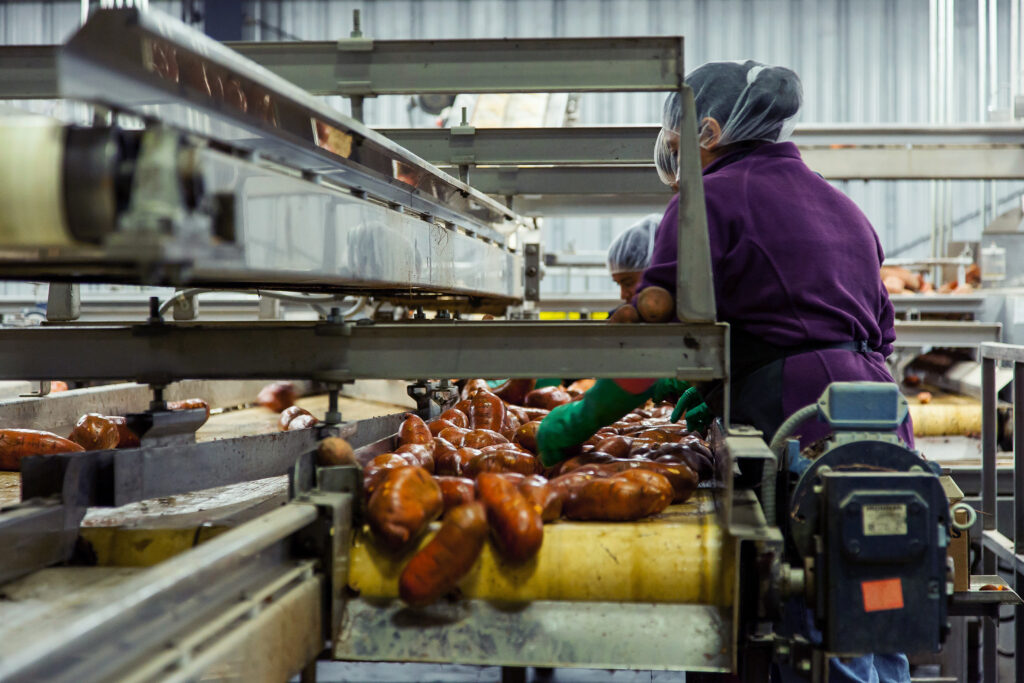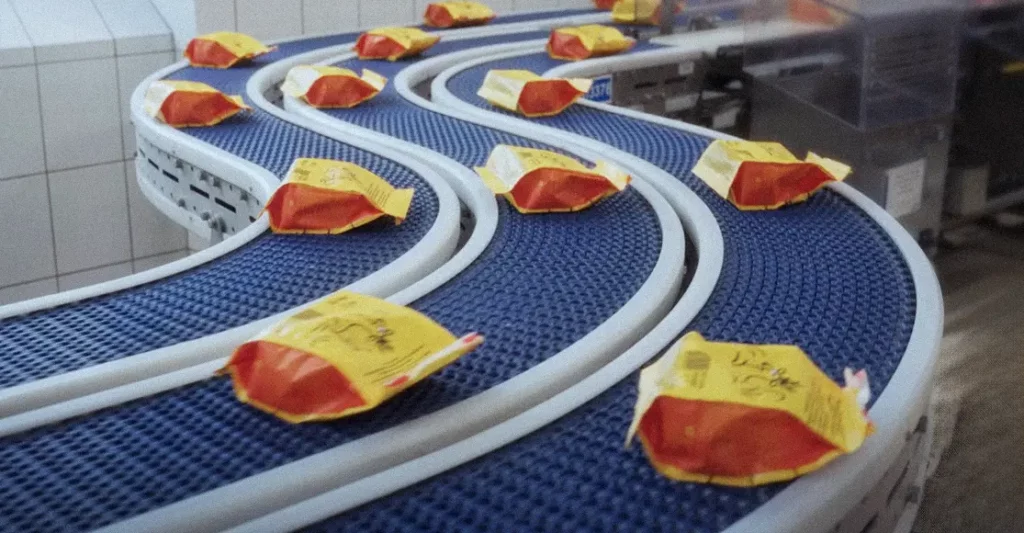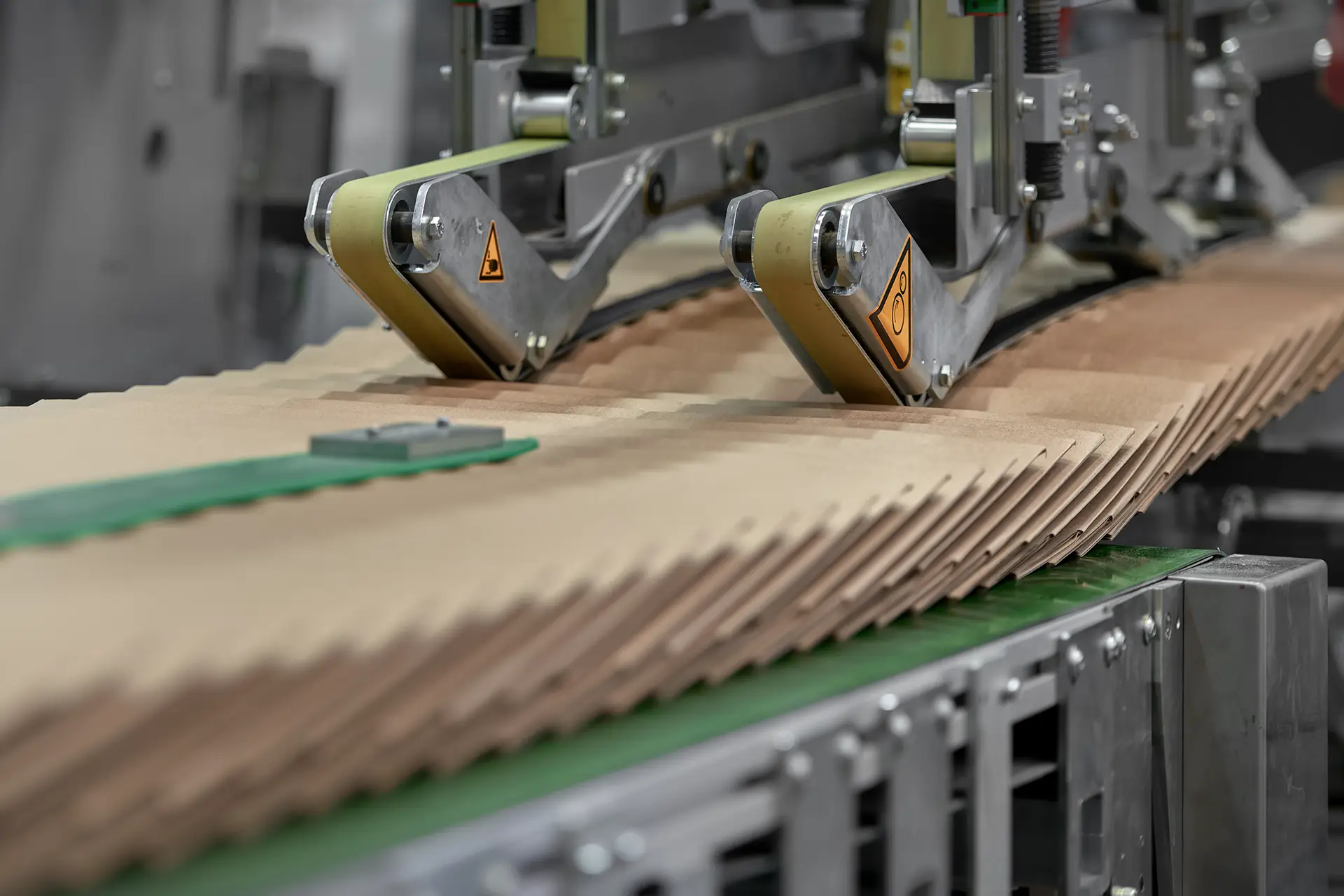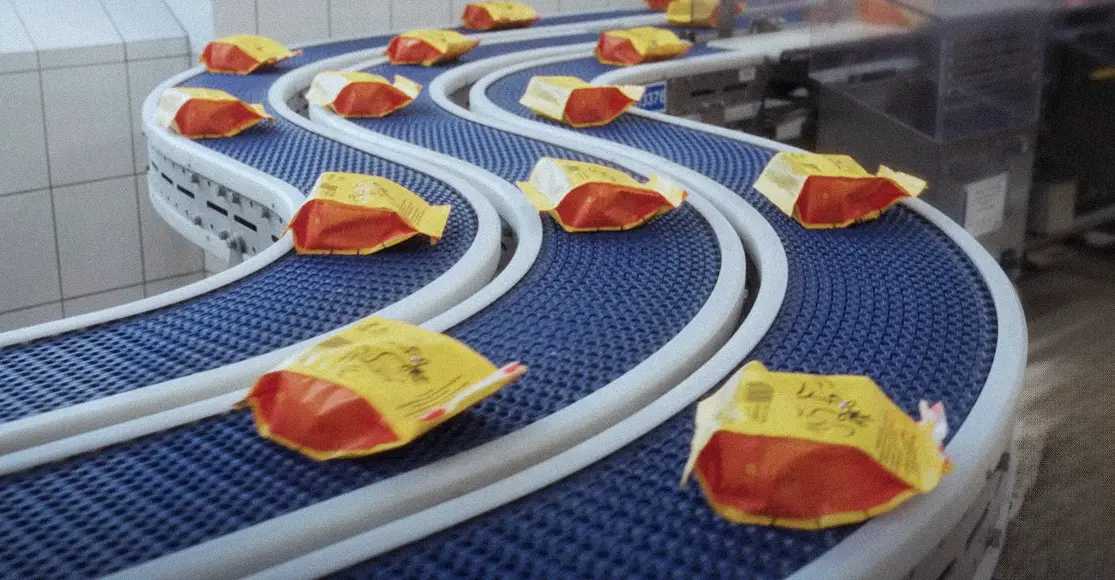A Manufacturing Execution System (MES) is advanced software pivotal for manufacturing management in industrial companies, offering a wide range of functionalities to integrate production processes at various levels. MES functionalities can be tailored to the individual needs of a company and the industry it operates in. Let’s explore the advantages MES solutions can bring to the food and beverage industry.
Manufacturing companies operating in the food and beverage industry must comply with numerous norms and restrictions to have their products approved for sale. MES in food manufacturing not only streamlines numerous processes but also helps companies adapt to these requirements.

One of the most fundamental functionalities of MES-class solutions, crucial for the food and beverage industry, is the ability to track production at every stage. An enterprise has full insight into the entire process, from the materials delivered to the facility to providing information on finished products.
The MES facilitates precise recipe management, which is extremely important in food manufacturing where changes in ingredients can affect product quality. The system enables users to track production in real time and quickly respond to any abnormalities by precisely locating their source.
Another essential benefit of MES solutions in the food and beverage industry is the flexibility and adaptability of production processes to changing conditions. For instance, if the same line is used for manufacturing different products, the system helps maintain all necessary safety procedures such as Clean in Place.
Like other industries, MES implementation in the food and beverage industry should start by analyzing the company’s needs and objectives. Are you aiming to improve quality, enhance efficiency, or optimize costs? The better we understand our expectations and issues we seek to resolve, the higher our chances of success.
Choosing the right solution is a crucial aspect of the implementation. With various MES options offered by different producers, deciding on a specific one should be based on its functionality, scalability, and integrability with other IT systems already present in the company. MES in the food and beverage industry should also meet all regulatory and hygienic requirements, such as Hazard Analysis and Critical Control Points (HACCP).
MES implementation in the food and beverage industry is best conducted in stages, starting with selected manufacturing lines or areas to minimize disruptions to the manufacturing process. Proper training should be provided for the employees to enable them to fully utilize the system’s potential. Ensuring technical support at the beginning of the implementation process is also essential.

MES is a comprehensive solution that brings manufacturing companies numerous benefits, such as improving equipment performance, better planning and decision-making, eliminating waste, and reducing costs. These are undoubtedly the benefits of implementing such a system, regardless of the industry in which the company operates.
Let’s take a closer look at the benefits of MES implementation in the process of making food products. Apart from the general advantages of the system’s functionality, MES in the food and beverage industry can streamline many operations that are key to the industry:
- Streamlining the process: the system collects information on suppliers, location of materials, and their usage. It can suggest what will be needed to manufacture a specific product. With comprehensive information on the entire process delivered in real time, MES in food manufacturing facilitates rapid response to any disruptions.
- Easy identification of defective batches: Having access to the whole product development process makes it possible to easily identify defective batches and discover the reasons for their occurrence. This ensures quick response in case of a warranty claim, preventing the release of or removing defective products from the market, and therefore avoiding penalties, damage to the company’s image, or putting consumers at risk.
- Quality improvement: Continuous control of manufacturing processes enables manufacturers to maintain high product quality, which is particularly important in food manufacturing. MES allows us to define recipes and specify the amounts of different ingredients, like allergens, in a certain product. The system does not permit goods or materials that don’t comply with quality norms.
- Easier adaptation to regulations: MES implementation in the food and beverage industry provides full traceability, making it significantly easier to meet the strict standards and requirements imposed on food manufacturers.
The Manufacturing Execution System is an invaluable tool in the food and beverage industry. Its implementation enables manufacturers to automate and optimize numerous processes while maintaining the industry’s restrictive requirements. In the long term, MES can bring significant savings and efficiency improvements. However, it is crucial to carefully plan the entire implementation process and adapt it to the specific needs of the food and beverage industry.
Would you like to learn more about the benefits of MES implementation for your company? Read our article.
Are you considering MES implementation in your company? Discover the steps you should take: Effective MES Implementation in 5 Steps
See also
Want to learn more? Visit our Knowledge Base, where you'll find articles and webinars by experts to expand your knowledge.
Check if Digital Transformation is the Answer to Your Company's Needs



































